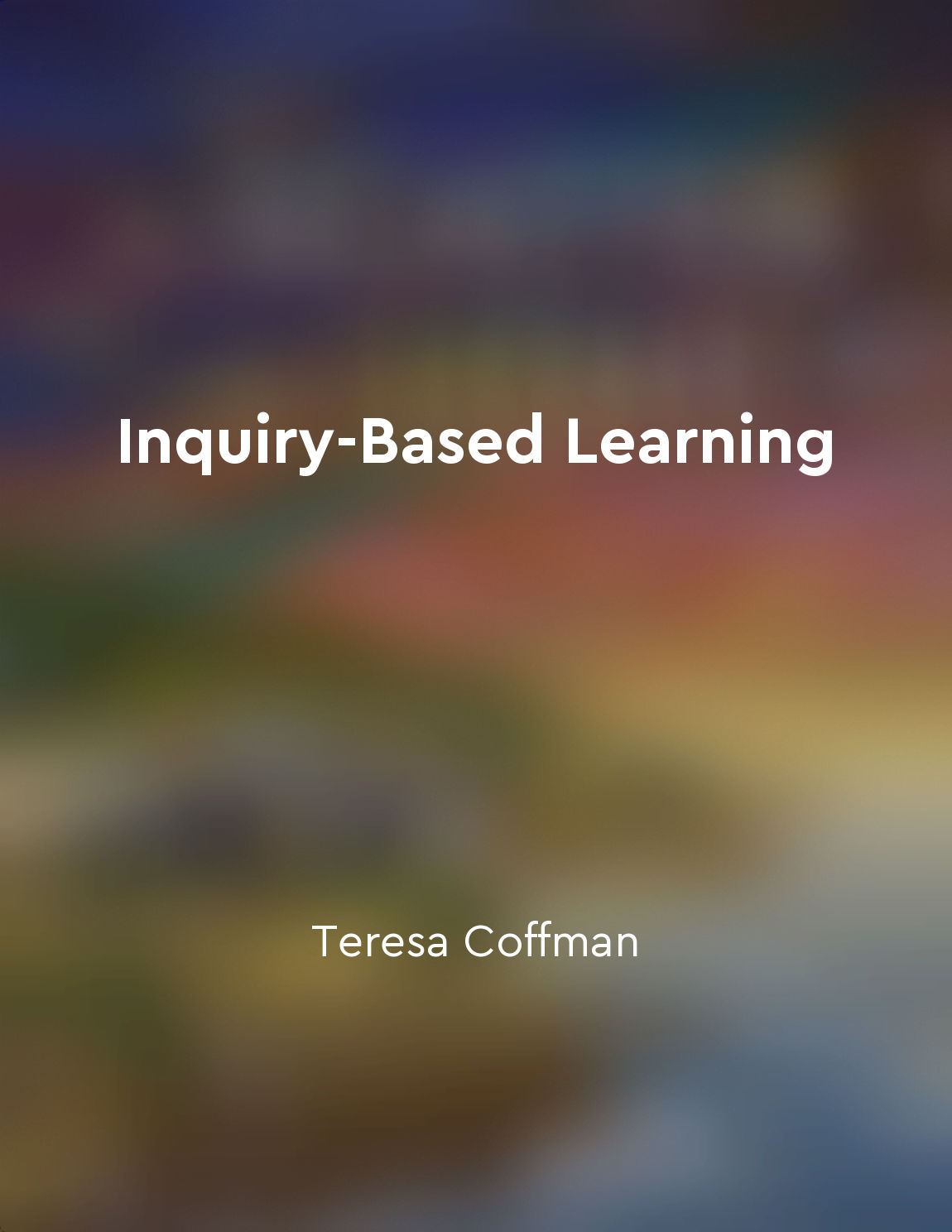Inquirybased learning promotes curiosity from "summary" of Inquiry-Based Learning by Teresa Coffman
The driving force behind inquiry-based learning lies in its ability to foster curiosity in students. By encouraging learners to ask questions, investigate problems, and seek solutions, this approach sparks a natural sense of wonder and inquisitiveness. Rather than simply receiving information passively, students are actively engaged in the learning process, allowing them to explore topics that pique their interest. This active involvement not only deepens their understanding of the subject matter but also cultivates a sense of ownership over their education. Inquiry-based learning encourages students to delve into complex issues, challenging them to think critically and creatively. This process of inquiry pushes learners to go beyond surface-level knowledge and engage with material on a deeper level. By posing questions and conducting research, students develop a sense of intellectual curiosity that drives them to seek out answers independently. This self-directed approach to learning not only enhances their problem-solving skills but also instills a lifelong love of learning. By promoting curiosity, inquiry-based learning creates an environment where students feel empowered to explore their interests and pursue their passions. Rather than relying solely on rote memorization and regurgitation of facts, learners are encouraged to think for themselves and draw connections between different concepts. This active exploration not only fosters a sense of discovery but also allows students to make meaningful connections between what they are learning and the world around them. Inquiry-based learning also helps students develop essential skills such as critical thinking, communication, and collaboration. By engaging in open-ended inquiries and group discussions, learners learn to articulate their ideas, listen to others, and work together to solve problems. This collaborative approach not only enhances their academic skills but also prepares them for success in an increasingly interconnected world. By promoting curiosity and fostering a sense of inquiry, this approach to learning empowers students to become lifelong learners who are curious, creative, and critical thinkers.Similar Posts
Recognize common argument patterns
Recognizing common argument patterns is a crucial skill for critical thinkers. By being able to identify these patterns, indivi...
Embrace the power of networking
Networking is not just about meeting new people or exchanging business cards. It is about building relationships, creating conn...
Overcome setbacks with resilience and determination
When faced with setbacks, it is essential to adopt a resilient and determined mindset. Resilience allows individuals to bounce ...

Take care of your physical and mental health
It is essential to prioritize both your physical and mental well-being in order to thrive in all aspects of your life. Neglecti...
Ask questions that provoke thought
The key to effective communication lies in asking questions that provoke thought. These types of questions go beyond simple inq...

Democracy thrives on diversity
The very life of democracy depends upon its capacity to foster and maintain diversity within its body. Diversity is not somethi...
Incorporates diverse question types
The questions in this question bank are designed to cover a wide range of question types, ensuring that students are well-prepa...
NCERT Solutions provide comprehensive explanations and practice questions
The NCERT Solutions for Science Class X are designed to offer students a thorough understanding of the concepts covered in the ...

